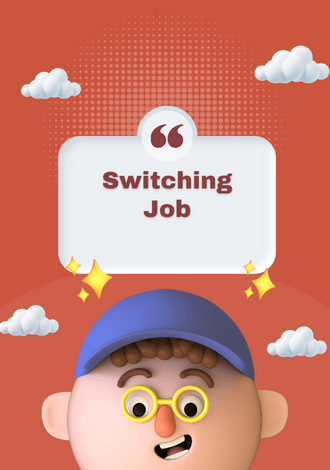
The current Job Market Scenario
The job market is becoming increasingly competitive and unpredictable, with many employees globally and in India considering job transition or leave the workforce altogether.
Insight from reports about Indian employees switching jobs
PwC India revealed that 34% of Indian employees are extremely or very likely to switch to a new employer, compared to 19% globally. Additionally, 32% of Indian employees plan to leave the workforce, with 71% concerned about being over looked for career advancement.
The desire for job change is also reflected in a LinkedIn report, which shows that 88% of young employees in India are planning to change jobs this year (2023). The report further notes that 80% of working professionals are considering a job change in 2023, with 88% of professionals in the age group 18-24 on the lookout for new roles.
Reason driving Job transitions
By now we have a fair idea why Indian employee considering a job transition? The top reasons for job change include a change in career interests, the need for higher pay, and better benefits. People may also want a new challenge, recognition, advancement opportunities, less stress, more flexibility, or to combat burnout.
As people consider career changes, it’s important to note that a job change is different from a career change. While a job change is staying in the same type of work but changing employers, a career change involves moving to a different type of work. It’s also essential to invest in skill sets and keep up-with the ever-changing times to remain future-fit.
Evolving Organizational Dynamics
According to a report by Gartner, many organizations’ management principles underlying the employee value proposition (EVP) are outdated.
Therefore, organizations need to focus on employees as people, recognize that work is a subset of life, and value feelings, not just features, to retain top talent.
Insights from thought leaders
Our former president Dr.APJ Abdul Kalam very rightly said “Love your job but never love your company, you never know when your company will stop loving you. Your skills are defined by your job, not by the organization you are working for.
Ultimately, being future-fit and ready for any eventuality means investing in upskilling and staying ahead of the curve.
Understanding Demographic trend
According to the data presented in the figure below, it appears that individuals between the ages of 35 and 44 are more likely to change careers due to the skill set required by their organization or the next role for which they are being appraised. If they are unable to meet the expectations of their current position, this often results in a decision to change their career or job.
Conclusion
I hope this information has been helpful in understanding the current trends and why Indian employees considering job transition. Remember, whether you’re looking for a new challenge, more recognition, better pay, or a less stressful work environment, it’s important to take the time to evaluate your career goals and prioritize your personal and professional development. By staying adaptable, keeping your skills up-to-date, and remaining open to new opportunities, you can position yourself for success in today’s ever-changing job market.


Nikolai Green
ashely nein